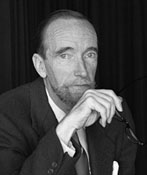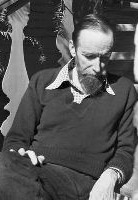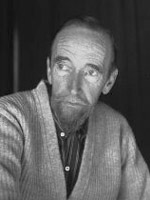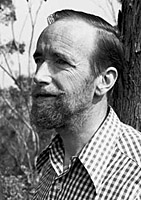 Gerald Heard
Gerald Heard Gerald Heard
Gerald HeardBorn in London on October 6, 1889, Henry FitzGerald "Gerald" Heard lived a life that would take many fascinating and fateful turns. Heard spent his university years at Cambridge University's Gonville and Caius College. There, in 1911, he took a Bachelor of Arts degree with honors in history.
Following Cambridge, Heard worked for Lord Robson of Jesmond, then Sir Horace Plunkett, founder of the influential Irish agricultural cooperative movement. Heard published his first book, Narcissus, in 1924, which advanced the revolutionary idea that fashion and architecture provide clues to the evolutionary stages of mankind. In 1929 he produced his second book, The Ascent of Humanity, a brilliant, groundbreaking essay on the philosophy of history that was awarded the British Academy's prestigious Hertz Prize.
Heard began his career as a public speaker in 1926, lecturing for three years under the auspices of Oxford University. In 1929 he became literary editor of The Realist, a short-lived but significant monthly journal of scientific humanism. There he worked with a distinguished editorial board that included Aldous Huxley, Julian Huxley, and H.G. Wells. Pacifists Heard and Aldous Huxley, associated with the Peace Movement, gave lectures in England in support of their cause during the mid-1930s.
From 1930 to 1934, Heard served as the BBC's first science commentator, commanding a large and regular listening audience with his sparkling fortnightly broadcasts. H.G. Wells once said of him, "Heard is the only man I ever listen to on the wireless. He makes human life come alive." The prolific Heard published 10 books during the 1930s.
Gerald Heard arrived in New York City in April 1937 on the S.S. Normandie, accompanied by Aldous Huxley. He traveled throughout the United States, taught for a term at Duke University, and embarked on a lecture tour with Huxley before settling in southern California in early 1938. The next year he met Swami Prabhavananda, founder of the Vedanta Society of Southern California. Heard subsequently introduced the ecumenical Vedanta philosophy to Huxley, Christopher Isherwood, and other Western notables, which prompted mystery writer Ellery Queen to write, "Gerald Heard is the spiritual godfather of this Western movement."
In 1941 Heard put the larger part of his personal financial resources into building and endowing the pioneering Trabuco College, which advanced comparative-religious studies and practices. Directed by Heard, and 30 years ahead of its time, Trabuco College was discontinued in 1947 and later donated to the Vedanta Society of Southern California. In addition to writing essays, articles, and short stories, Heard published an astonishing 18 books during the 1940s.
Alongside his nonfiction writing, Heard wrote several acclaimed mysteries and supernatural fantasies under the pen name H. F. Heard, including Reply Paid, The Notched Hairpin, and Doppelgangers. His best-selling 1941 novel, A Taste for Honey, praised by Christopher Morley and Boris Karloff, was loosely adapted into a movie, 1967's The Deadly Bees, the first in the killer-bees genre. (Karloff played Mr. Mycroft in the ABC TV adaptation of A Taste for Honey, which aired on February 22, 1955.) His 1947 whodunit masterpiece, "The President of the United States, Detective," won first prize in the second-annual Ellery Queen's Mystery Magazine short-story contest.
For the remaining fifteen years of his active life, Heard spent his time and energy in writing, lecturing, research, travel, and making numerous radio and television appearances. He moderated an eight-part series, Focus on Sanity, which appeared on CBS television in 1957. He lectured at most of the major colleges and universities in the United States, including Harvard, Cornell, Princeton, and UCLA. He spoke at religious venues as diverse as the Vedanta Society, the First Congregational Church in Akron, Temple Sinai in Beverly Hills, and the Soto Zen Temple in Honolulu. His last book was his 1963 magnum opus The Five Ages of Man, which Robert R. Kirsch, literary critic of the Los Angeles Times, praised as, "...the most important work to date of this challenging and brilliant philosopher, a volume which in scope and daring might be the Novum Organum of the twentieth century."
Gerald Heard, influential writer, historian, and lecturer, whom Rabbi Zalman Schachter-Shalomi referred to as, "the repository of the most encompassing cosmology of his generation," succumbed peacefully on August 14, 1971 at his home in Santa Monica, California, at the age of 81.
 |
 |
 |